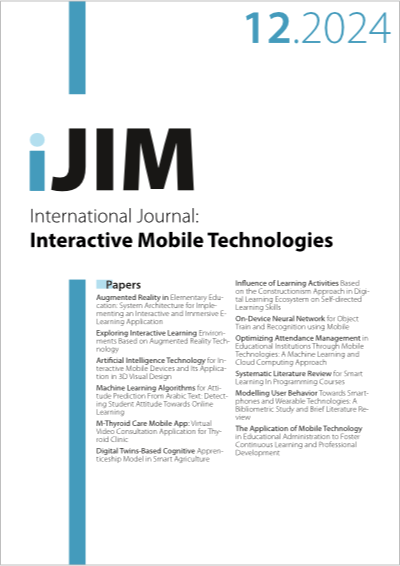Digital Twins-Based Cognitive Apprenticeship Model in Smart Agriculture
DOI:
https://doi.org/10.3991/ijim.v18i12.46847Keywords:
digital twins, cognitive apprenticeship, computational thinkingAbstract
Applying digital technologies in education has been proven to have several positive impacts on teaching and learning. Digital twins have the potential to revolutionize education by offering immersive and interactive learning experiences. They can simulate virtual environments, enabling students to conduct experiments, practice techniques, and observe outcomes in a safe and cost-effective setting, particularly when access to physical laboratories is limited or expensive. This work proposes a learning management model that applies cognitive apprenticeship learning theory as a framework for learning digital twins to enhance the programming of a smart agriculture system and computational thinking skills. The model consists of three parts: input, learning process, and output with feedback. The input phase includes setting learning objectives, analyzing learners, determining learning content, planning learning activities, and utilizing a digital twin virtual laboratory space for experimenting in the development of a smart agriculture system. The learning process involves engaging students in programming and problem-solving tasks by offering expert guidance and support in computationally solving problems. The achievement of learning outcomes and practices is included in the output and feedback sections. After evaluation, five experts in this subject agreed that the learning management model was at the most appropriate level.
Downloads
Published
How to Cite
Issue
Section
License
Copyright (c) 2024 Dr.Phimphan Thipphayasaeng, Professor Dr.Pallop Piriyasurawong, Sant Phanichsiti

This work is licensed under a Creative Commons Attribution 4.0 International License.


